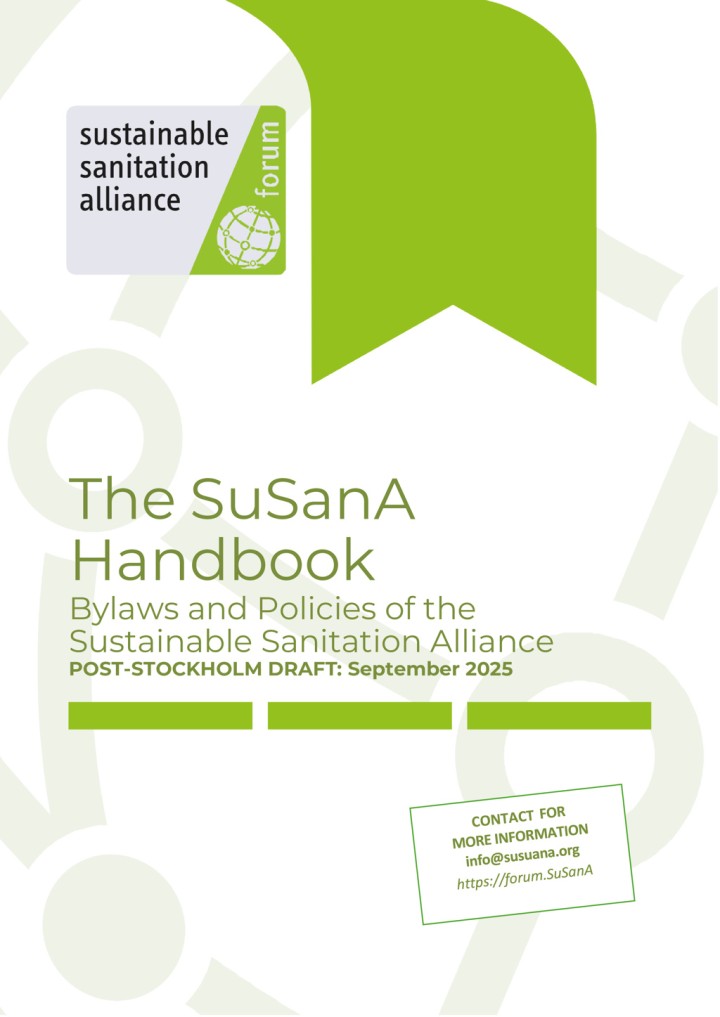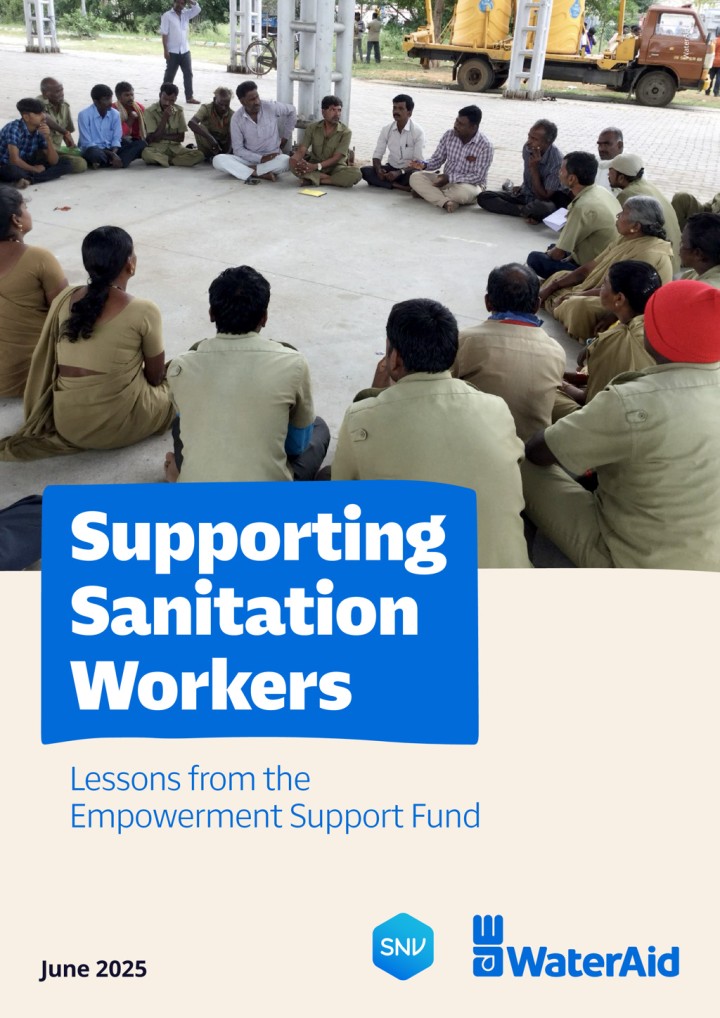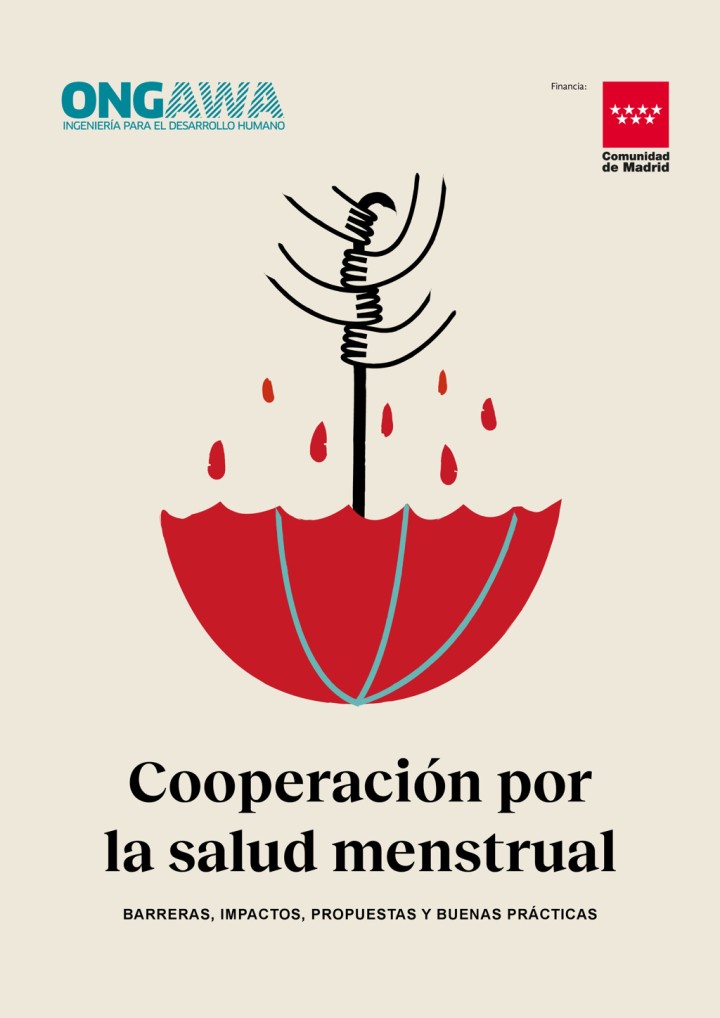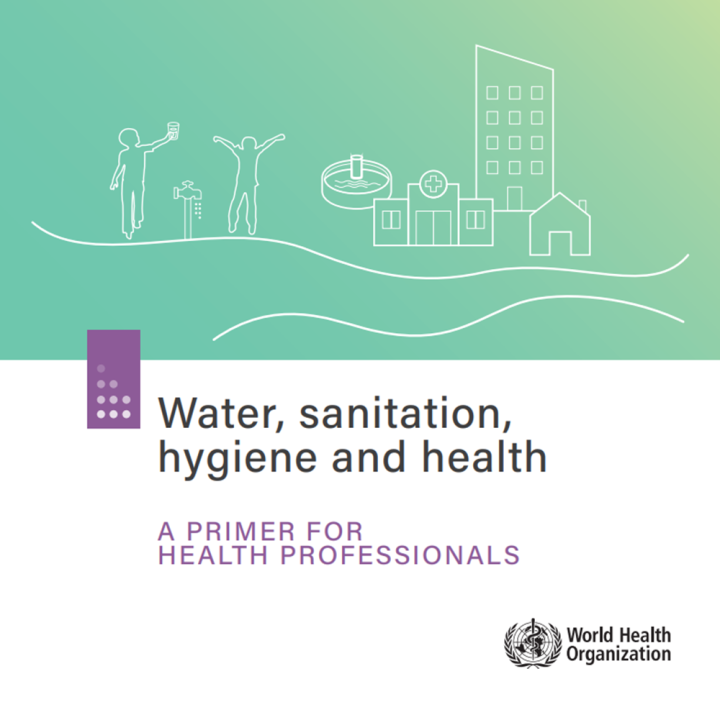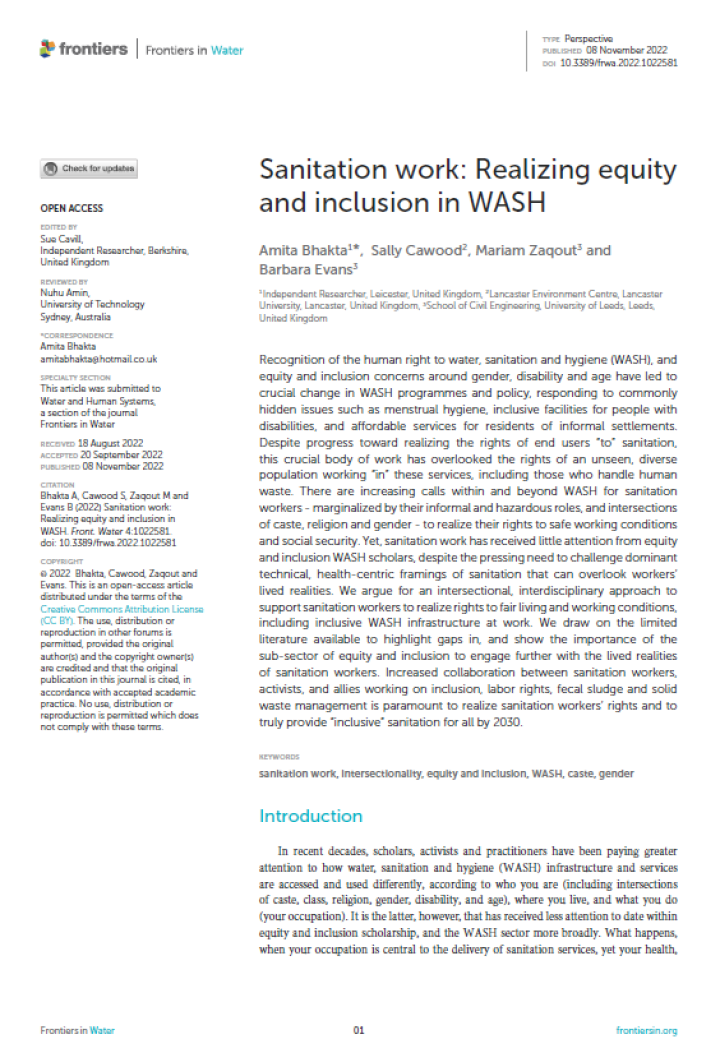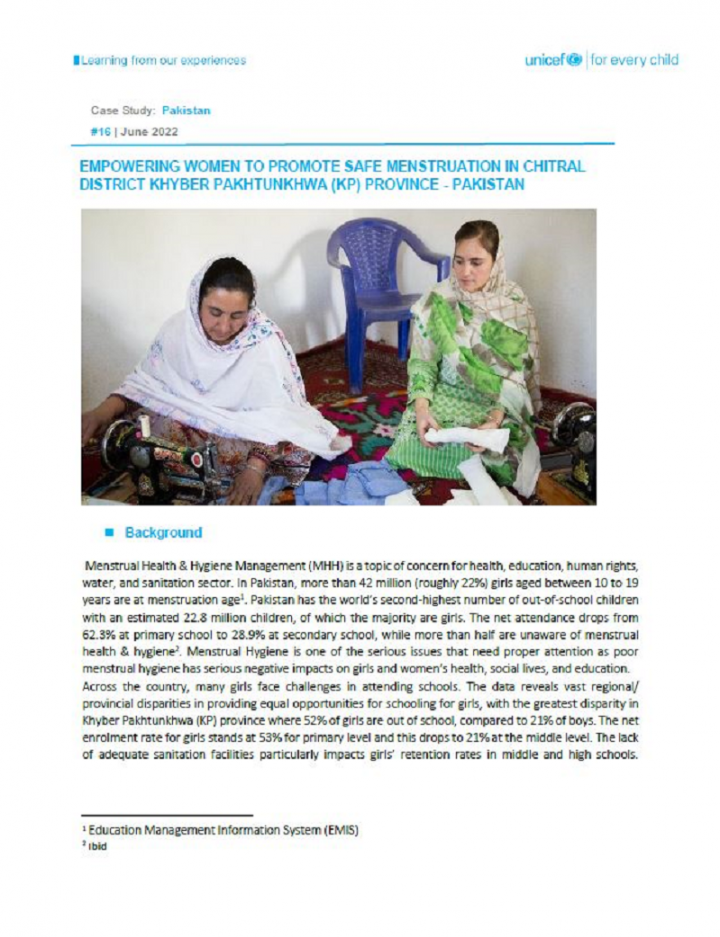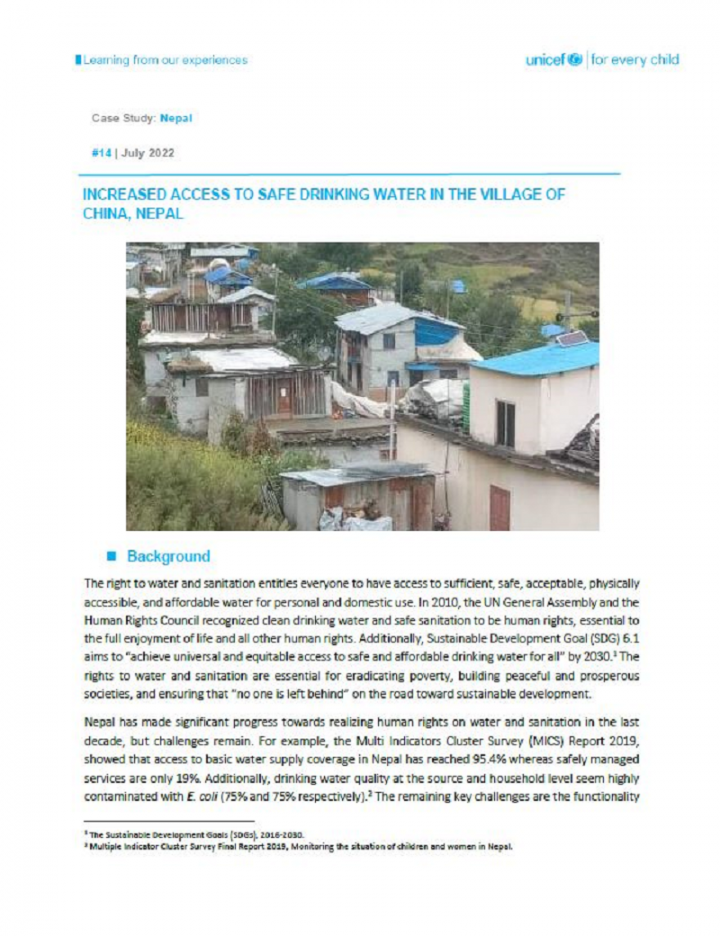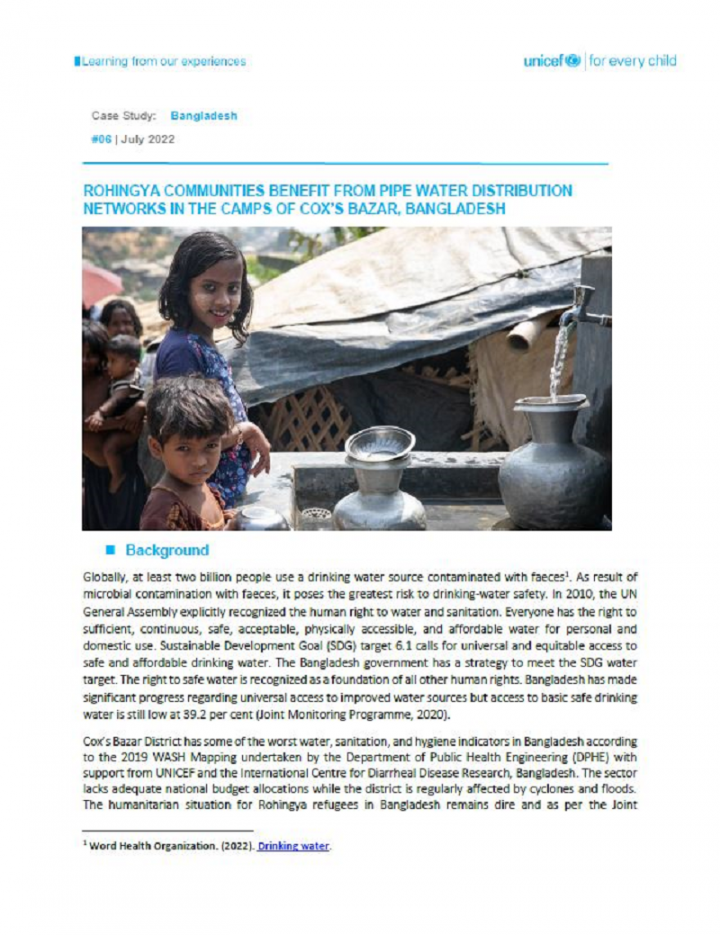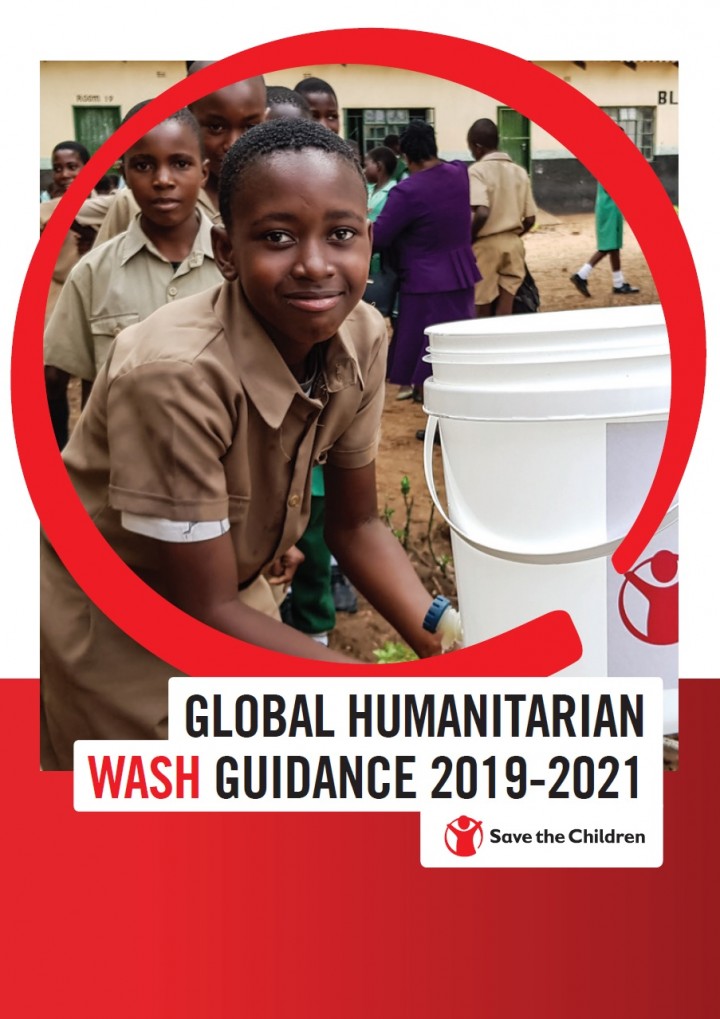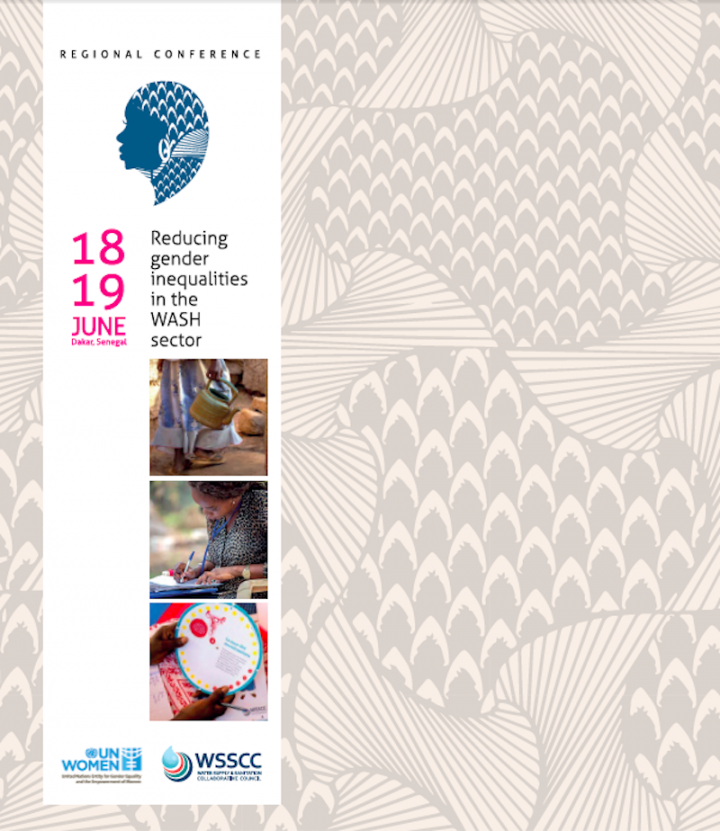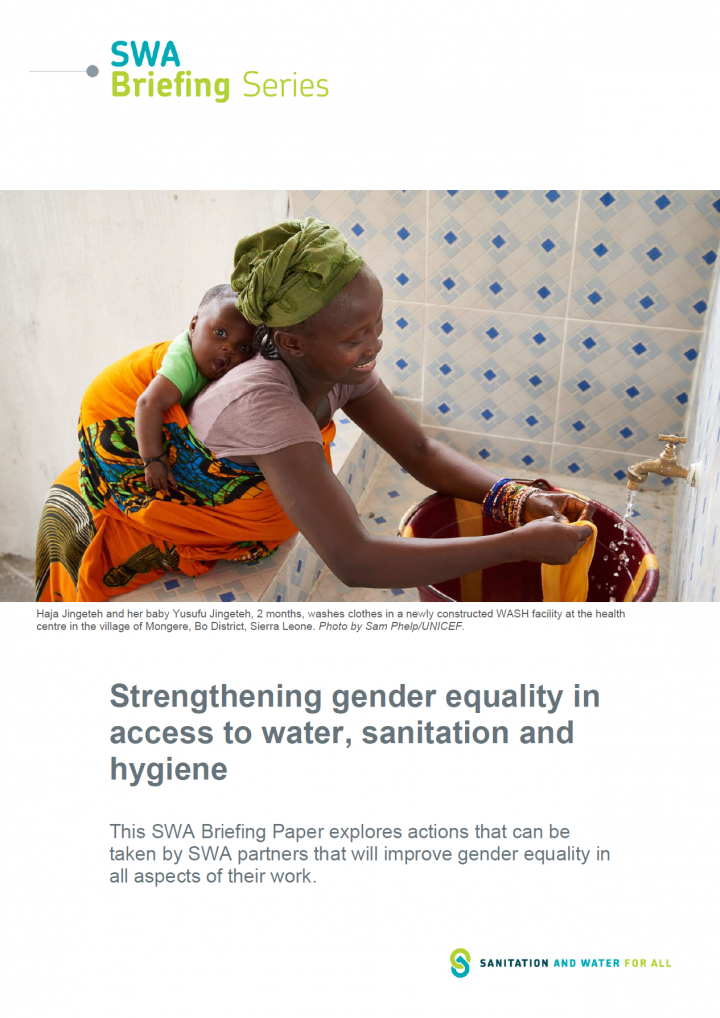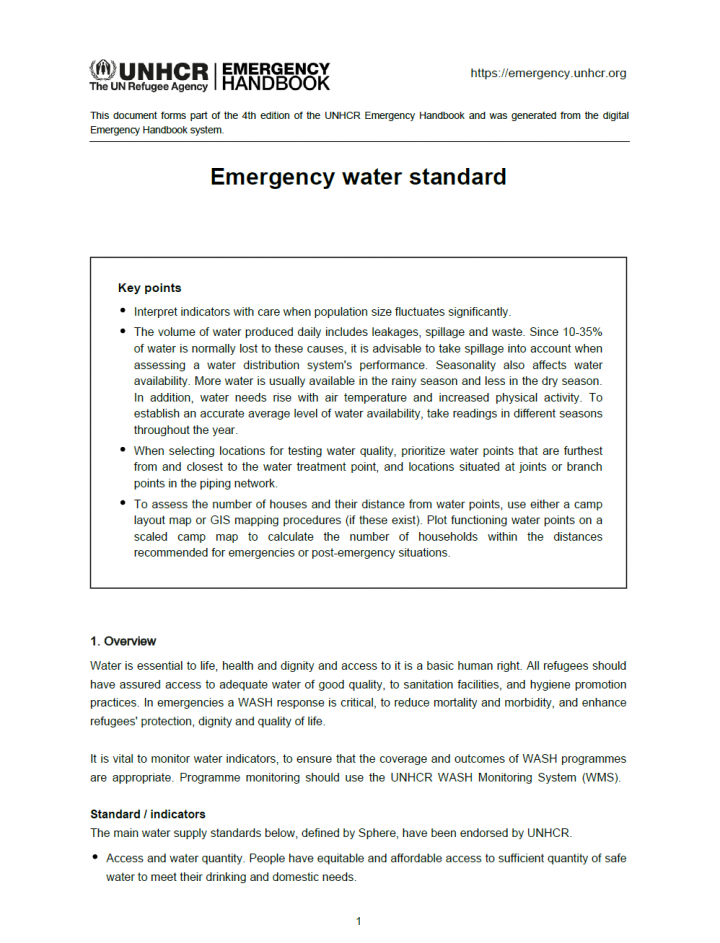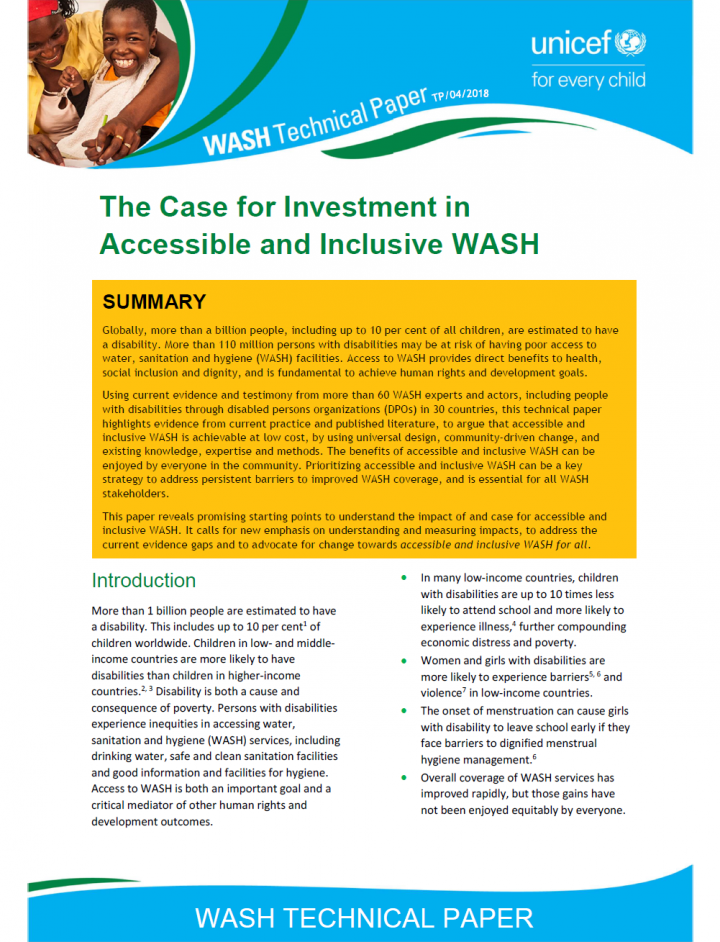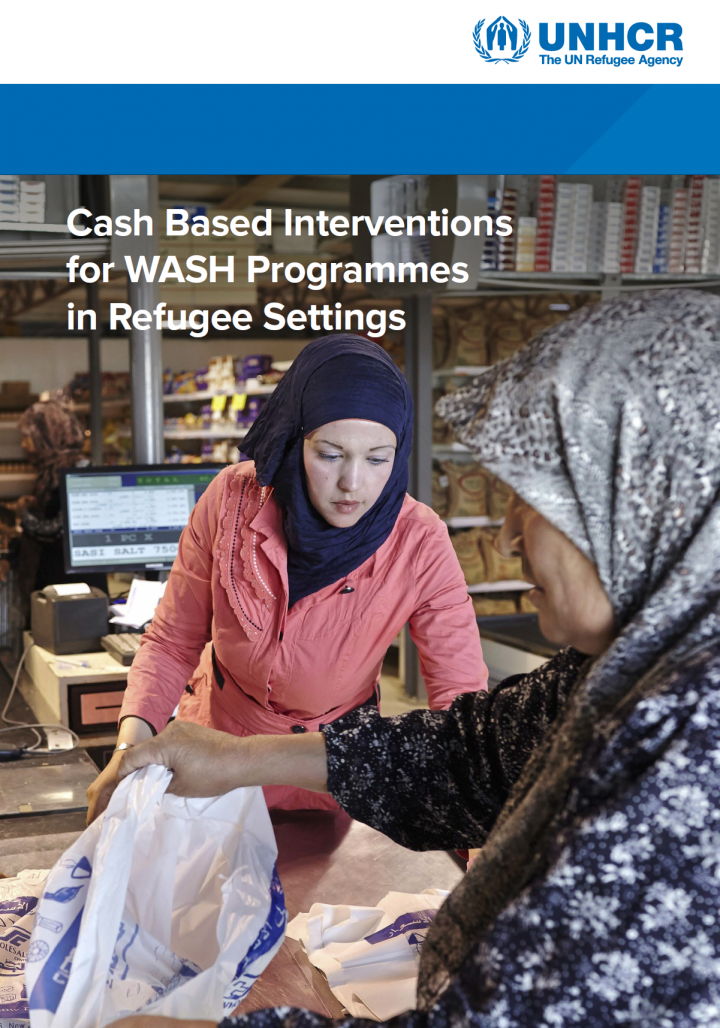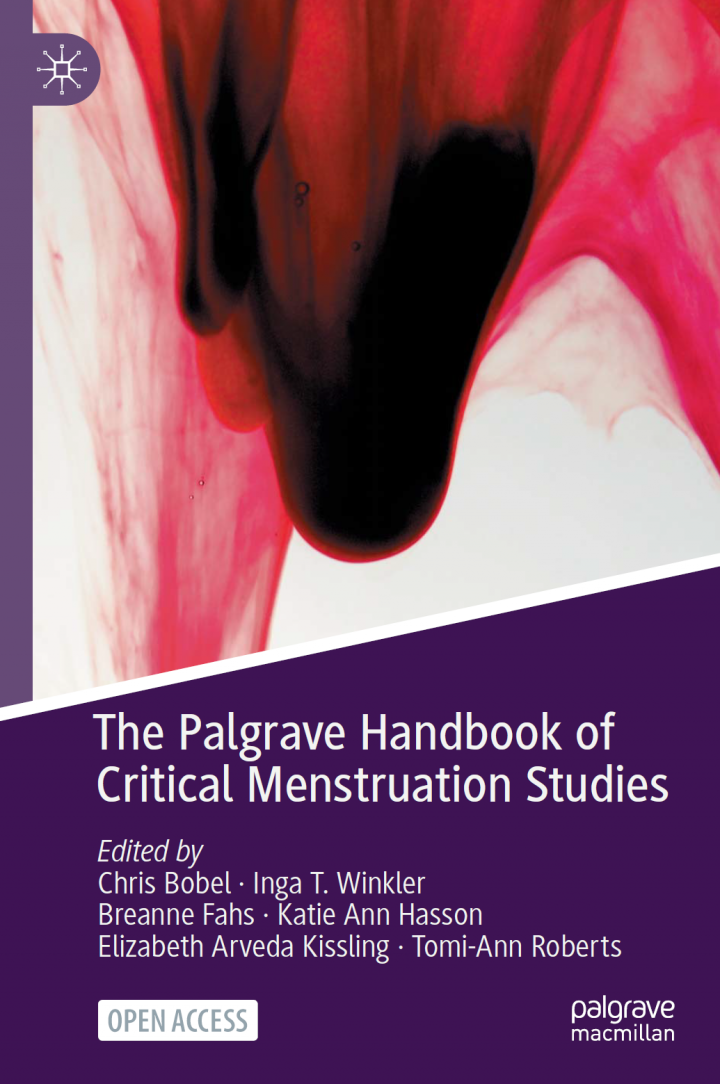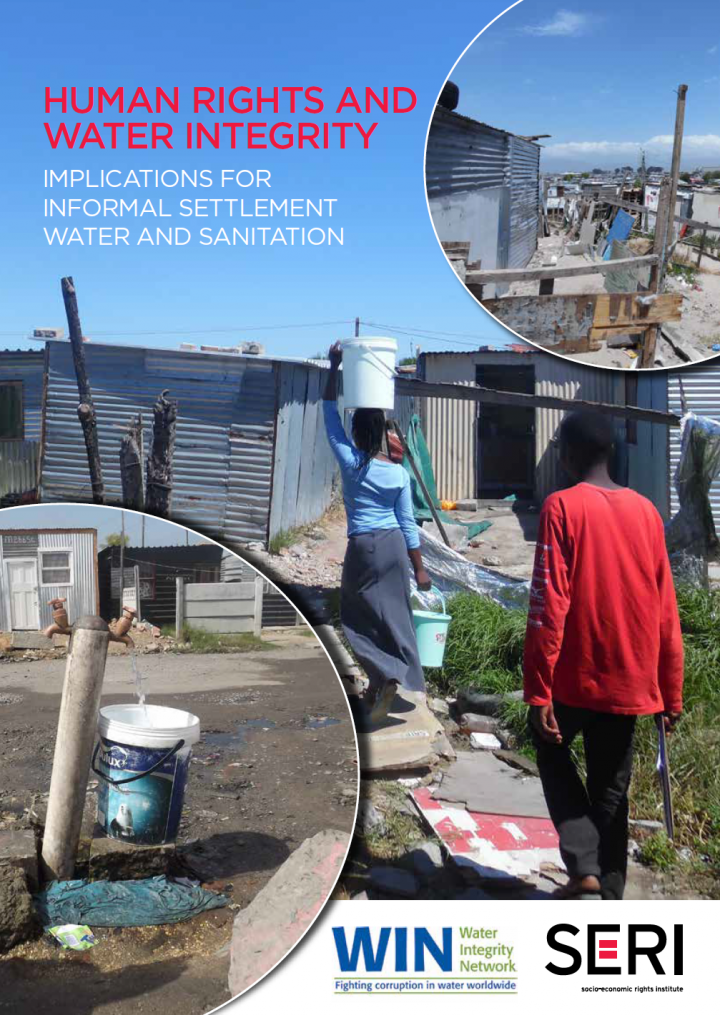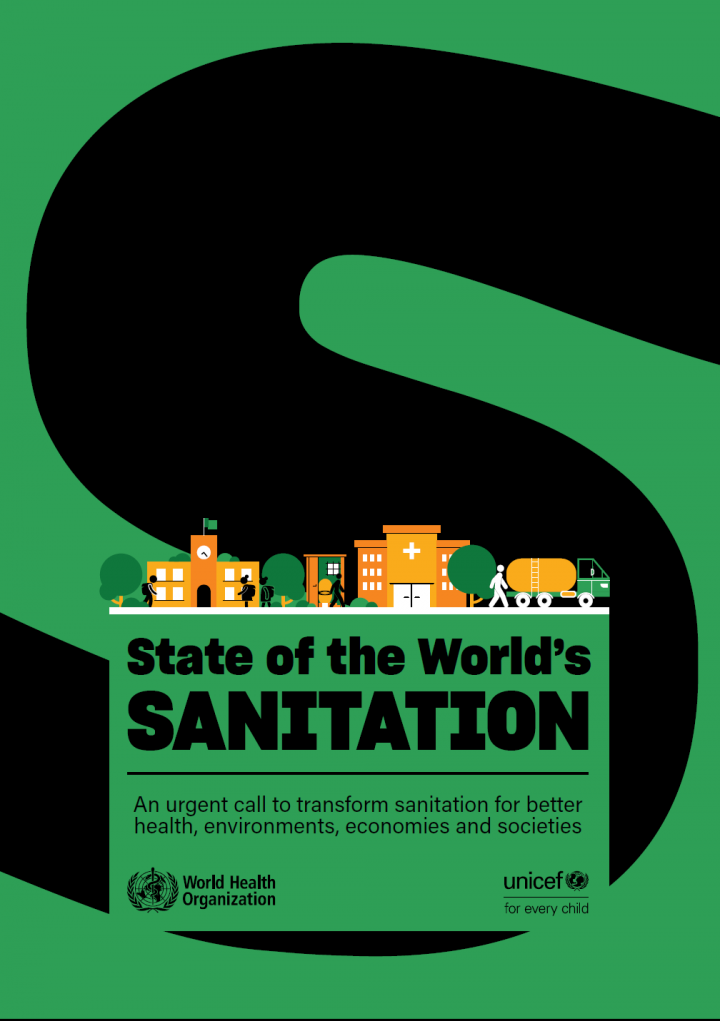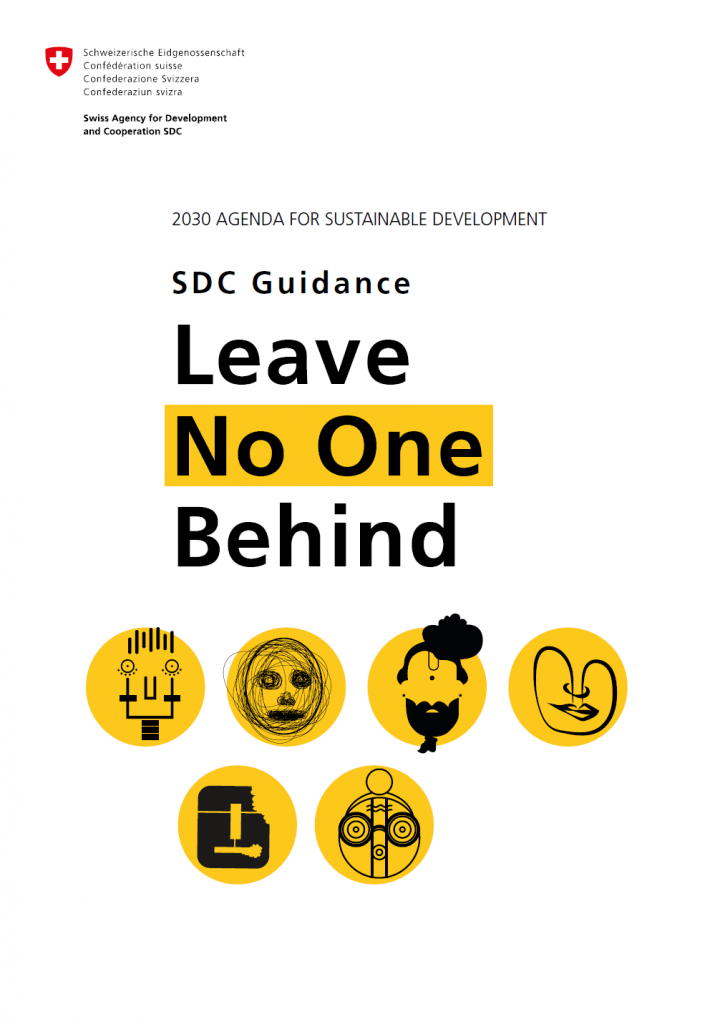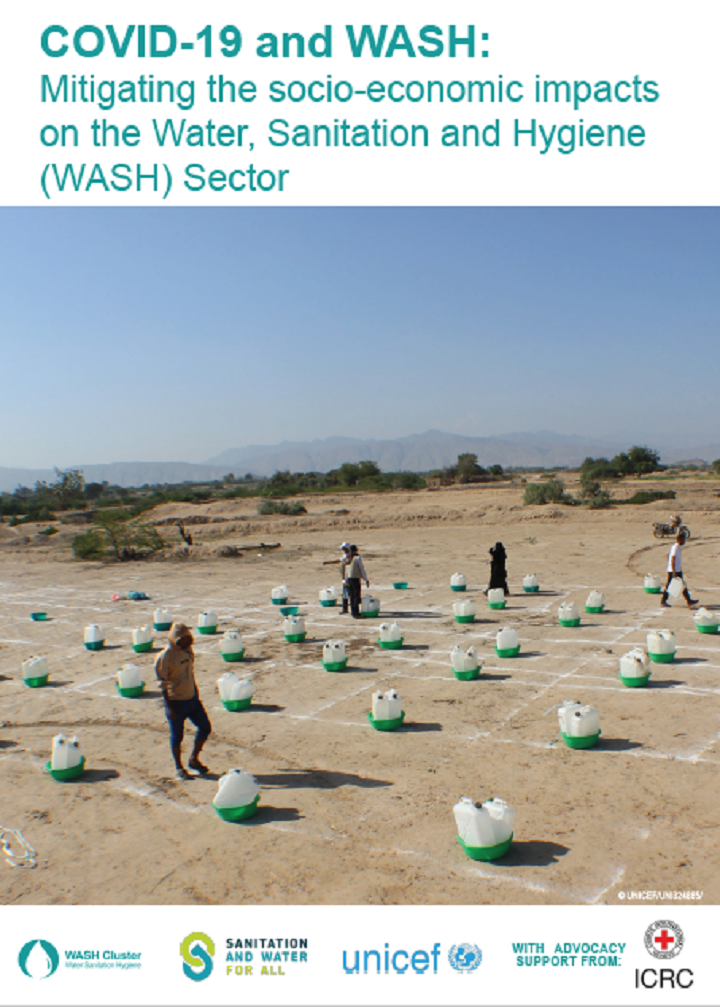Sustainable Sanitation Alliance (2025) The SuSanA Handbook Bylaws and Policies of the Sustainable Sanitation Alliance
Sanitation is dignity, hygiene is health, water is life. They underpin everyday life for everyone who has ever lived and who will ever live - and yet today more than billion people do not even enjoy these basic human rights. Since 2007, the Sustainable Sanitation Alliance has been at the forefront of advocating that sanitation systems should be economically viable, socially acceptable, technically and institutionally appropriate, […]
SNV and WaterAid (2025) Supporting Sanitation Workers Lessons from the Empowerment Support Fund
Sanitation workers, involved in faecal waste management, face dangerous and oppressive working conditions, as well as stigma. A key challenge weakening their voices is the lack of collective organisation among sanitation workers. Their health, safety and dignity is an issue of human rights, but it is also crucial for achieving the ambitions of safely managed sanitation for all and the promotion of decent work, as […]
Ma del Mar Rivero Rosas; Rocío Romar Díaz; María del Mar Rodríguez González; Alberto Guijarro Lomeña (2025) Cooperación por la salud menstrual: Barreras, impactos, propuestas, y buenas prácticas
Menstrual hygiene is a fundamental part of the human right to sanitation, yet millions of people in marginalized communities face systemic barriers to managing menstruation safely. This report examines the critical link between water, sanitation, and menstrual hygiene, highlighting the barriers and impacts faced by women, girls and other people who menstruate, and proposes actions and strategies to integrate menstrual hygiene into broader water and sanitation […]
World Health Organization (2019) Water, sanitation, hygiene and health: A primer for health professionals
Safe water, sanitation and hygiene (collectively known as WASH) are crucial for human health and well-being. Yet, millions of people globally lack adequate WASH services and consequently suffer from or are exposed to a multitude of preventable illnesses. Lack of safe WASH negatively impacts quality of life and undermines fundamental human rights. Poor WASH services also weaken health systems, threaten health security and place a […]
Amita Bhakta, Sally Cawood, Mariam Zaqout and Barbara Evans (2022) Sanitation work: Realizing equity and inclusion in WASH
Recognition of the human right to water, sanitation and hygiene (WASH), and equity and inclusion concerns around gender, disability and age have led to crucial change in WASH programmes and policy, responding to commonly hidden issues such as menstrual hygiene, inclusive facilities for people with disabilities, and affordable services for residents of informal settlements. Despite progress toward realizing the rights of end users “to” sanitation, […]
Kakakhel, W. S. (2022) EMPOWERING WOMEN TO PROMOTE SAFE MENSTRUATION IN CHITRAL DISTRICT KHYBER PAKHTUNKHWA (KP) PROVINCE - PAKISTAN
Menstrual Health & Hygiene Management (MHH) is a topic of concern for health, education, human rights, water, and sanitation sector. In Pakistan, more than 42 million (roughly 22%) girls aged between 10 to 19 years are at menstruation age1. Pakistan has the world’s second-highest number of out-of-school children with an estimated 22.8 million children, of which the majority are girls. The net attendance drops from […]
Rokaya, K. B. (2022) INCREASED ACCESS TO SAFE DRINKING WATER IN THE VILLAGE OF CHINA, NEPAL
The right to water and sanitation entitles everyone to have access to sufficient, safe, acceptable, physically accessible, and affordable water for personal and domestic use. In 2010, the UN General Assembly and the Human Rights Council recognized clean drinking water and safe sanitation to be human rights, essential to the full enjoyment of life and all other human rights. Additionally, Sustainable Development Goal (SDG) 6.1 […]
Yesmin, K. (2022) ROHINGYA COMMUNITIES BENEFIT FROM PIPE WATER DISTRIBUTION NETWORKS IN THE CAMPS OF COX’S BAZAR, BANGLADESH
Globally, at least two billion people use a drinking water source contaminated with faeces1. As result of microbial contamination with faeces, it poses the greatest risk to drinking-water safety. In 2010, the UN General Assembly explicitly recognized the human right to water and sanitation. Everyone has the right to sufficient, continuous, safe, acceptable, physically accessible, and affordable water for personal and domestic use. Sustainable Development […]
Sanitation Workers Forum 2021 (2022) Connecting Labour Rights & Sanitation Workshop
Polite notice: This session includes detail (through the documentary film and presentations) about real-life cases of sanitation worker deaths and injuries, which some viewers/attendees may find upsetting* Workshop to connect key learnings from the labour and human rights sectors (on occupational health and safety, formalisation, collectivisation, worker entitlements and responding to labour violations) to ongoing advocacy on sanitation work in the Water, Sanitation and Hygiene (WASH) […]
Save the Children UK (2019) Global Humanitarian WASH Guidance 2019-2021
Our vision is a world in which every child affected by an emergency wherever she/he is – at home or displaced; in schools; and in health institutions – has the right and access to safe water supply and adequate sanitation facilities and is enabled to perform basic hygiene. This operational guidance outlines the role Humanitarian WASH will play within Save the Children 2019-2021 strategy. The contribution […]
WSSCC (2018) Reducing Gender Inequalities in the WASH Sector
Building on a human right-based approach, the Gender,Hygiene and Sanitation (GHS) Joint Programme, implemented by the Water Supply and Sanitation Collaborative Council (WSSCC) and the United Nations Entity for Gender Equality and the Empowerment of Women (UN Women), intends to support governments in assessing their policies, guidelines and budgets to better reflect women’s and girls’ rights and specific needs for water supply and sanitation. The GHS […]
SWA (2021) Strengthening gender equality in access to water, sanitation and hygiene
This SWA Briefing Paper explores actions that can be taken by SWA partners that will improve gender equality in all aspects of their work. While there has been significant progress over the last few decades, gender inequality continues to be one of the most pervasive human rights violations throughout the world. Despite considerable attention and commitment, including through the SDGs’ gender equality goal, no country has […]
UNHCR (2021) Emergency water standard
Water is essential to life, health and dignity and access to it is a basic human right. All refugees should have assured access to adequate water of good quality, to sanitation facilities, and hygiene promotion practices. In emergencies a WASH response is critical, to reduce mortality and morbidity, and enhance refugees' protection, dignity and quality of life. It is vital to monitor water indicators, to ensure […]
UNICEF (2018) The Case for Investment in Accessible and Inclusive WASH
Globally, more than a billion people, including up to 10 per cent of all children, are estimated to have a disability. More than 110 million persons with disabilities may be at risk of having poor access to water, sanitation and hygiene (WASH) facilities. Access to WASH provides direct benefits to health, social inclusion and dignity, and is fundamental to achieve human rights and development goals. […]
UNHCR (2016) Cash Based Interventions for WASH Programmes in Refugee Settings
Human rights underpin all aspects of UNHCR’s international protection work and provide a basic normative framework governing UNHCR’s protection and asistance activities, including in support to access water, sanitation and hygiene (WASH) services. UNHCR supports the full implementation by States of their obligations under international and human rights law as provided for, inter alia, in the 1951 Convention relating to the Status of Refugees, The […]
Bobel, C., Winkler, I. T., Fahs, B., Hasson, K. A., Kissling, E. A., Roberts, T (2020) The Palgrave Handbook of Critical Menstruation Studies
This open access handbook, the first of its kind, provides a comprehensive and carefully curated multidisciplinary genre-spanning view of the state of the field of Critical Menstruation Studies, opening up new directions in research and advocacy. It is animated by the central question: ‘“what new lines of inquiry are possible when we center our attention on menstrual health and politics across the life course?” The […]
Roaf, V., Potter, A., Ngunjiri, I., and Schreiner, B. (2020) Human Rights and Water Integrity Implications For Informal Settlement Water And Sanitation
Despite clear international law on the human right to water, and widespread recognition of this right, almost one billion people still do not have adequate, affordable and safe access to water and 2.4 billion people do not have access to safe sanitation. The world’s urban population is increasing and by conservative estimates, rates of growth will continue well into the middle of this century. By 2050, […]
UNICEF, WHO (2020) State of the World’s Sanitation An urgent call to transform sanitation for better health, environments, economies and societies
The world is alarmingly off-track to deliver sanitation for all by 2030. Despite progress, over half of the world’s population, 4.2 billion people, use sanitation services that leave human waste untreated, threatening human and environmental health. An estimated 673 million people have no toilets at all and practise open defecation, while nearly 698 million school-age children lacked basic sanitation services at their school. The consequences […]
Swiss Agency for Development and Cooperation (SDC) (2020) Thematic Working Aid “Leave no one behind in practice: Water, Sanitation & Hygiene” by SDC (in English and French)
The 2030 Agenda for Sustainable Development recognises “that eradicating poverty in all its forms and dimensions, including extreme poverty, is the greatest global challenge and an indispensable requirement for sustainable development”. In adopting this Agenda, the international community pledged to leave no one behind, to see to it that the Goals and targets are met for all nations and peoples and for all segments of […]
Global Wash Cluster (GWC), Sanitation and Water for All (SWA), UNICEF, ICRC (2020) COVID-19 and WASH: Mitigating the socio-economic impacts on the Water, Sanitation and Hygiene (WASH) Sector
Clean drinking water, improved sanitation and good hygiene practices are life-sustaining and play an important role in maintaining public health. The benefits of water, sanitation and hygiene (WASH) cannot be underestimated in controlling the spread of disease, as well as underpinning human rights, well-being and development. Safe water, sanitation and hygiene is a necessity to reduce the spread of COVID-19 and maintain good hygiene practices. […]
